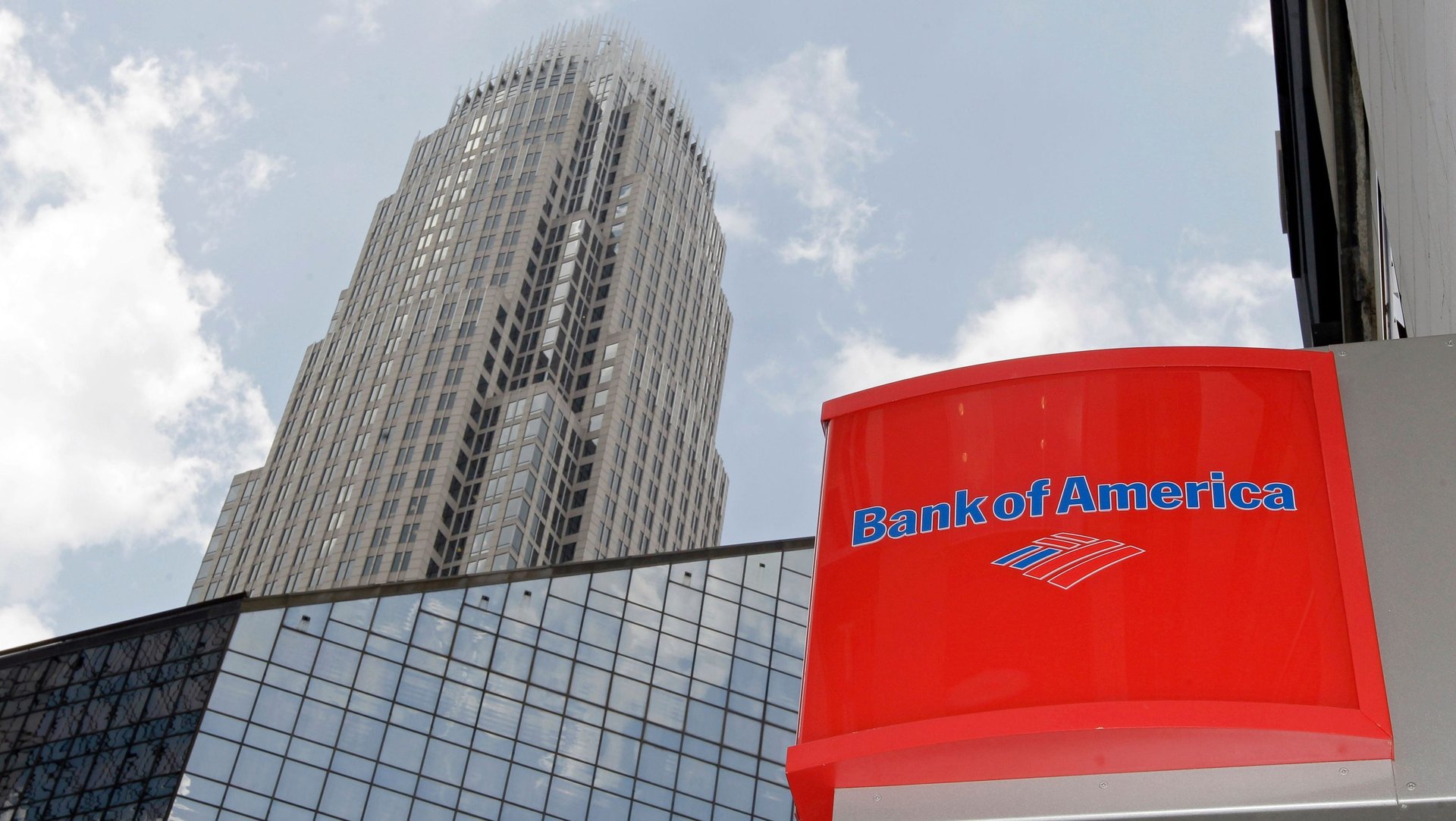One of America’s largest banks is now refusing to lend to assault-rifle makers
Bank of America, the US’s third-largest bank by revenue, is the latest corporation to publicly take a stand against the gun industry in the aftermath of February’s school shooting in Parkland, Florida. The bank will no longer lend to makers of assault rifles, it declared this week.


Bank of America, the US’s third-largest bank by revenue, is the latest corporation to publicly take a stand against the gun industry in the aftermath of February’s school shooting in Parkland, Florida. The bank will no longer lend to makers of assault rifles, it declared this week.
“It’s our intention not to finance these military-style firearms for civilian use,” Anne Finucane, a vice president of the bank, said in an interview with Bloomberg Television. The bank also will no longer underwrite stock or bond offerings from those companies, which include some of the biggest US gun makers like Vista Outdoor and Remington, both of which have done business with Bank of America in the past.
The lender is following the lead of Citigroup, which said in March that it will apply new standards for its business customers who sell firearms, and will refuse to lend money to or process credit cards for retailers who sell bump stocks, or any guns to buyers under 21. Meanwhile, the First National Bank of Omaha announced it will no longer issue a National Rife Association-branded credit card.
Untangling itself from relationships with America’s thousands of gun makers won’t be simple for the finance industry, which owns their shares, rates their debt, finances their operations, and backs their securities. It’s unclear whether Bank of America and other banks can fully sever those ties, and how doing so will affect their business. While Delta Airlines drew the gun lobby’s wrath and lost a tax break in Georgia when it decided to end a discount for NRA members, reaction to the banks’ decision has so far been muted.
Bank of America may find itself in a more delicate position than other banks because—unlike most of its peers in finance—it’s based not in New York but in Charlotte, North Carolina, deep in the heart of gun country. The sensibilities of its neighbors may be one reason Finacune said Bank of America won’t go as far as Citi and still plans to do business with retailers that sell military-style weapons, if not the weapons makers themselves.
Correction: An earlier version of this article relied on inaccurate data to say the average North Carolina resident owned 15 guns. In fact, there are about 11 guns for every 1,000 residents of North Carolina, according to CBS News.